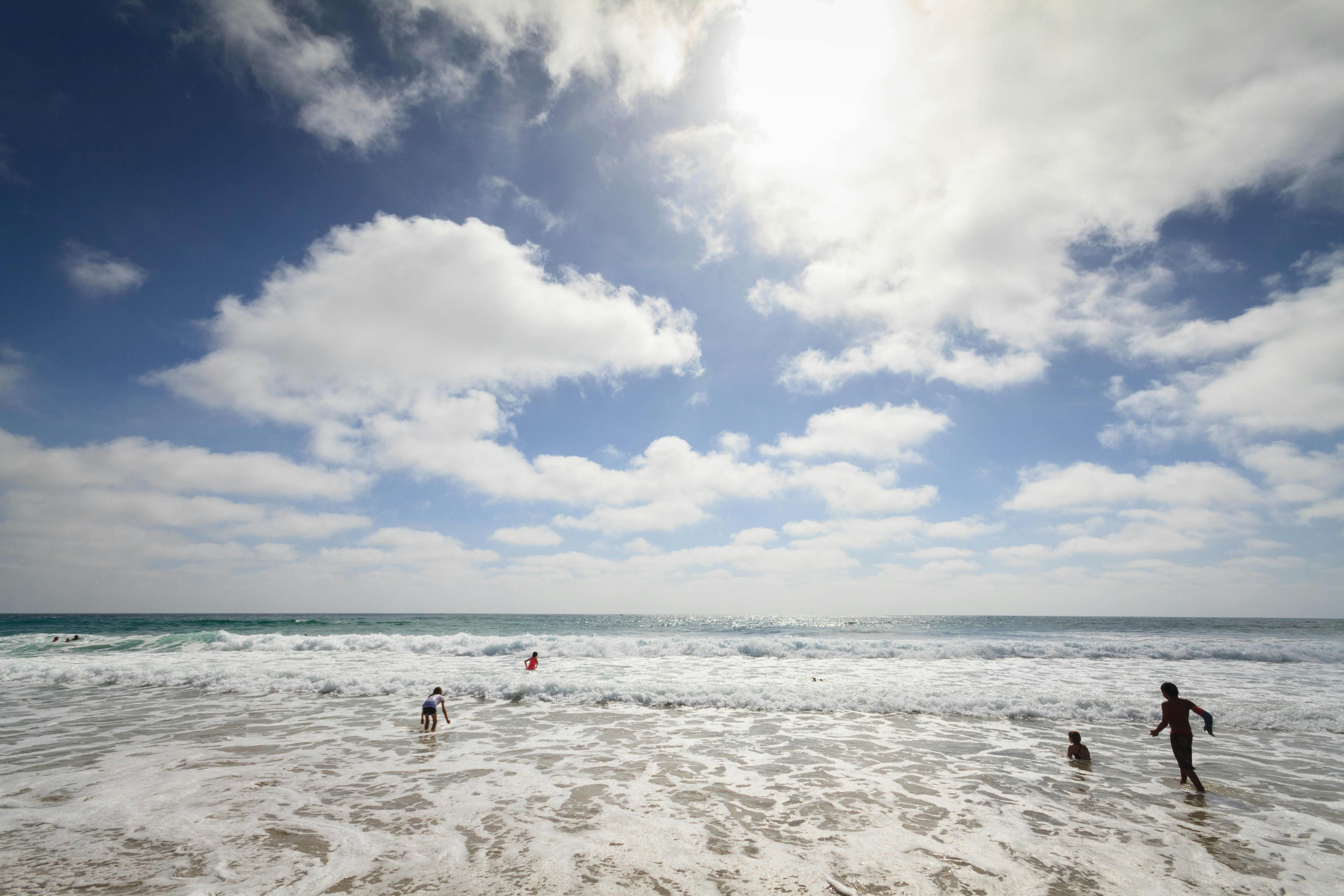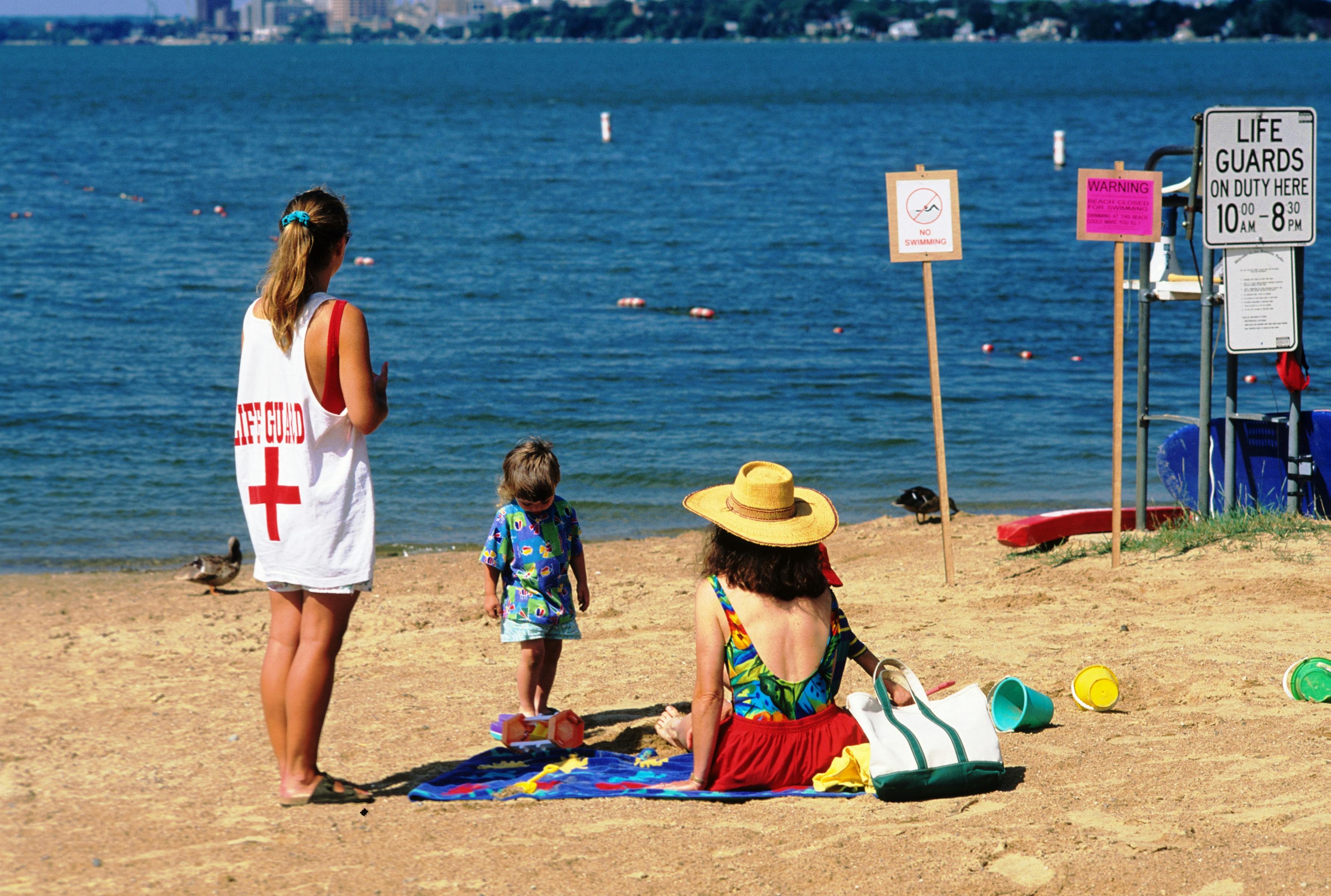People can get sick from swimming in pools as well as from swimming in natural water bodies, like lakes, rivers, swim holes, and coastal beaches. The majority of reported recreational water illnesses are in fact contracted from pools and other treated water. The main cause of illness from a dip in a pool are the germs that are carried into the water on our bodies. These microbes can contaminate the water and cause illness in other bathers.
Natural water bodies can also make you sick. Marine and freshwater beaches, lakes, rivers, and ponds can be contaminated with bacteria, chemicals, pathogens, and other pollutants from sewage bypasses, combined sewer overflows, human and animal faeces, urban runoff, and pollution. Pathogens in the water such as viruses, bacteria and parasites can cause illnesses such as gastrointestinal infections, rashes, respiratory illnesses and even life-threatening neurological conditions.
An estimated 3.5 million people get sick each year after swimming in natural water bodies containing harmful bacteria and pollution, according to the U.S. Environmental Protection Agency (EPA). On average, after swimming in a natural water source like a lake or a coastal beach, you have an estimated 3%-8% chance of getting sick. Your risk of falling ill depends on a number of factors, such as your age, the health of your immune system, the concentration of contaminants in the water, and the amount of contact you have with the water.
When are you most at risk?
After rainfall: The risk of illness from recreational water activities increases when the level of contamination in the water rises, such as following heavy rainfalls. Heavy rainfall washes many contaminants into the water, and combined sewer overflows, sewage bypasses are more likely during this time. Therefore it is advised you avoid recreational water activities at least 48 hours after rain.
At crowded beaches during the height of swim season: Summer and swimming: the two are so interfused it is hard to imagine one without the other. It should come as no surprise that recreational water illnesses occur more frequently during the summer, at the height of swimming season. When people go into the water for a dip they can carry many contaminants such as fecal waste and microbes in with them. Which is why you should always take a shower before and after swimming, even at the beach. To avoid transferring illnesses to other swimmers you should always shower before going in the water, avoid going in the water if you are sick, and never ever pee or poo in the water.
Swimming at a posted beach: You should avoid water contact if the beach has been posted with high bacteria counts, or any other water quality concerns such as a blue green algae bloom. The higher the level of bacteria in the water the more likely you are to get sick.
Swimming near sewer outfalls, wastewater treatment plants, and the mouths of rivers and creeks: These spots typically have elevated levels of contamination in the water and therefore you are more likely to get sick if this is where you are swimming.
Who is most at risk?
It’s no secret that children love the water. However, they are more are at risk because their immune systems aren’t as developed as an adults, they swallow more water, stay in the water for longer, and often play in the most contaminated areas of the beach – the shallow water and sand. Other groups more at risk are the elderly, pregnant women, and people with already compromised immune systems.Tourists also have a higher risk of falling in will swimming in open water.

Certain activities can also put you more at risk of illness and infections.
Participating in primary contact activities such as swimming and surfing in contaminated water puts you at risk for contracting a recreational water illness. You can even fall ill after participating in secondary contact activities where contact with the water is low, such as fishing or sailing.
To protect people from getting sick, recreational water quality standards were established.
Common Recreational Water Illnesses
The most common recreational water illness that affects public health is acute gastrointestinal illnesses such as diarrhea. Diarrheal illnesses are caused by parasites such as Cryptosporidium (Crypto), and Giardia. People with diarrhea should absolutely not go swimming. This is because people with diarrhea are very contagious and they will likely pass their illness to other swimmers.
The following list of pathogens outlines the most important and common recreational water illnesses. For a full list of water-related illnesses associated with natural water sources click here.
Parasites
- Cryptosporidium (most common recreational water illness) : Contracted by ingesting contaminated recreational water Cryptosporidium can cause watery diarrhea, stomach cramps, dehydration, vomiting, fever, nausea; can cause chronic life-threatening diarrhea in people who have immunological problems.
- Giardia : Contracted by ingesting contaminated recreational water. Symptoms include Ddiarrhea, gas, stomach cramps, nausea, vomiting, dehydration
- Cercarial Dermatitis (Swimmer’s Itch) : Skin contact with contaminated water causing an allergic reaction to certain parasites. Tingling, burning, or itching of the skin, small reddish pimples, and small blisters are all possible symptoms.
Bacteria
- Campylobacter: Caused by ingesting contaminated recreational water. Symptoms include diarrhea,cramps, abdominal pain fever, nausea, vomiting. Some people don’t have any symptoms.
- E. coli: Caused by ingesting contaminated recreational water. E.coli can cause severe diarrhea, including bloody stools and abdominal cramps. Some types of E. coli can lead to kidney failure.
- Algal Blooms (Cyanobacteria): Skin contact or ingesting contaminated recreational water can lead to the following symptoms: Asthma, eye irritation, rashes, and blisters around the mouth and nose.
- Leptospira: Ingesting contaminated recreational water or through openings such as eyes, ears, nose and wounds can lead to high fever, headache, chills, Muscle aches, vomiting, jaundice,red eyes, abdominal pain, diarrhea, rash. Some people don’t have any symptoms.
- Shigella: Ingesting contaminated recreational water can lead to Shigella. Symptoms include severe diarrhea including bloody stools,stomach cramps, fever.
- Plesiomonas: Contracted by ingesting contaminated recreational water can cause diarrhea, nausea, vomiting, fever, chills, and abdominal pain.
Viruses
- Norovirus: Contracted by ingesting contaminated recreational water. Norovirus is very contagious. Diarrhea, vomiting, nausea, stomach pain, fever, headache,body aches are possible symptoms.
THIS IS A SERIES OF ARTICLES ON HEALTH AND SAFETY SPONSORED BY PORTSTORONTO.

